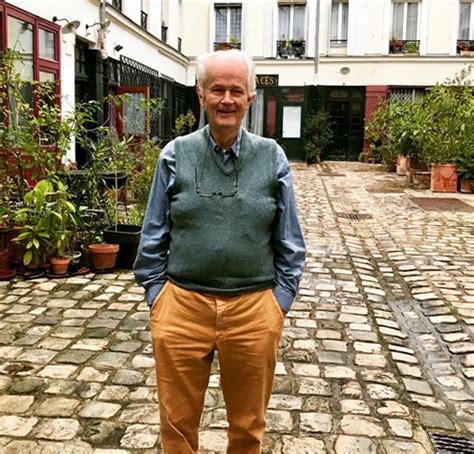A Quote by Laozi
One's own self or material goods, which has more worth?
Loss (of self) or possession (of goods), which is the greater evil?
He who loves most, spends most,
He who hoards much loses much
Related Quotes
While it is undeniable that many have been driven to immorality and crime by the need to survive, it is equally evident that the possession of a significant surplus of material goods has never been a guarantee against covetousness, rapacity and the infinite variety of vice and pain which spring from such passions. Indeed, it could be argued that the unrelenting compulsion of those who already have much to acquire even more has generated greater injustice, immorality and wretchedness than the cumulative effect of the struggles of the severely underprivileged to better their lot.
Do not worry! Earthly goods deceive the human heart into believing that they give it security and freedom from worry. But in truth, they are what cause anxiety. The heart which clings to goods receives with them the choking burden of worry. Worry collects treasures, and treasures produce more worries. We desire to secure our lives with earthly goods; we want our worrying to make us worry-free, but the truth is the opposite. The chains which bind us to earthly goods, the clutches which hold the goods tight, are themselves worries.
Dysfunctions can occur in each of the self-regulatory subfunctions-in how personal experiences are self-monitored and cognitively processed, in the evaluative self-standards that are adopted, and in the evaluative self-reactions to one's own behavior.. Problems at any one of these points can create self-dissatisfactions and dejection. dysfunctions in all aspects of the self system are most apt to produce the most chronic self-disparagement and despondency
There is but one means available to improve the material conditions of mankind: to accelerate the growth of capital accumulated as against the growth in population. The greater the amount of capital invested per head of the worker, the more and better goods can be produced and consumed. This is what capitalism, the much abused profit system, has brought about and brings about daily anew. Yet, most present-day governments and political parties are eager to destroy this system.
Based on first-hand evidence of your own senses - the improved health and later ages at which acquaintances die nowadays as compared with the past; the material goods that we now possess; the speed at which information, entertainment, and we ourselves move freely throughout the world - it seems to me that a person must be literally deaf and blind not to perceive that humanity is in a much better state than ever before.
People with self-respect exhibit a certain toughness, a kind of moral nerve; they display what was once called *character,* a quality which, although approved in the abstract, sometimes loses ground to the other, more instantly negotiable virtues.... character--the willingness to accept responsibility for one's own life--is the source from which self-respect springs.
In sum, doubling is the psychological means by which one invokes the evil potential of the self. That evil is neither inherent in the self nor foreign to it. To live out the doubling and call forth the evil is a moral choice for which one is responsible, whatever the level of consciousness involved.
Side by side with the miseries of underdevelopment...we find ourselves up against a form of superdevelopment, equally inadmissable. This superdevelopment consists in an excessive availability of material goods for the benefit of certain social groups and makes people slaves of "possession" and immediate gratification, with no other horizon than the multiplication or continual replacement of the things already owned with others still better. This is the civilization of consumption, or "consumerism," which involves so much throwing away and waste.









































